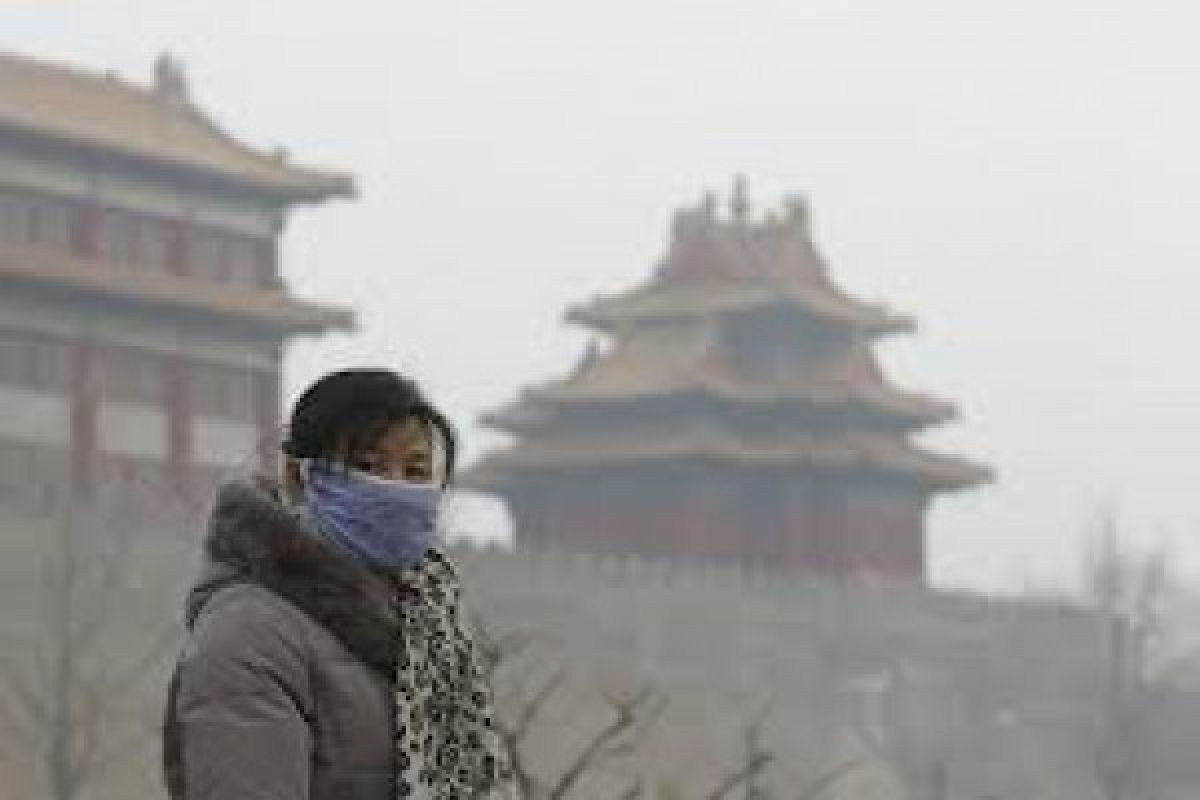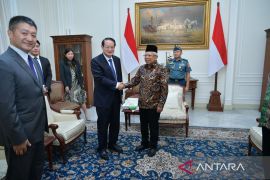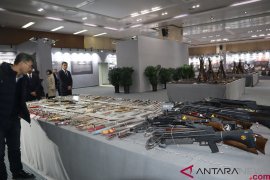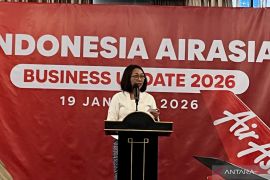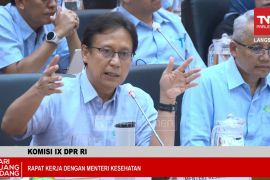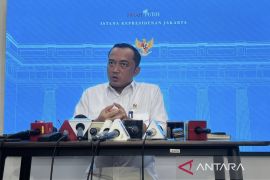"Big companies aren`t willing to spend money on cleaning themselves up."Xingtai (ANTARA News/AFP) - Thick grey smog pressed against Zhao Jian`s windshield, blotting visibility to two metres as he drove through China`s most polluted city.
"I don`t remember ever seeing air pollution so bad," said Zhao of the weeks of recent haze that saw hazardous air hanging across swathes of the country.
But like others in Xingtai, a 3,000-year-old city that in February was officially declared to have the country`s worst air pollution, Zhao has no hope for improvement. "There`s nothing you can do," he said.
China`s Communist Party leaders, currently gathered in Beijing for the annual meeting of the National People`s Congress, have promised action on pollution in response to growing public outrage.
The capital itself has seen particulate levels 25 times higher than World Health Organisation (WHO) limits, and the pollution is inflicting a heavy toll on both human health and economic activity.
"The state of the ecological environment affects the level of the people`s well-being and also posterity and the future of our nation," Premier Wen Jiabao said in an address to the congress.
"We should resolve to solve the problems of serious air, water, and soil pollution that affect the people`s vital interests."
Air pollution caused at least 8,572 premature deaths in four of China`s biggest cities last year, and 6.8 billion yuan ($1.1 billion) in economic losses, according to a study by Peking University and Greenpeace published in December.
But analysts say that without a serious threat of social unrest, China`s rulers are unlikely to abandon their focus on economic growth or take radical action on polluting industries in the face of powerful vested interests.
Metres away from the towering smokestacks of Xingtai`s sprawling steel plants -- many of them state-owned -- shopkeepers have no difficulty pointing out the source of the pollution.
"It`s sulphur dioxide from the steel plant," said Zhang Shouxiang, 65. "Big companies aren`t willing to spend money on cleaning themselves up."
Nearly half of China`s emissions of PM2.5 -- tiny particles that penetrate deep into the lungs -- come from coal burning, with the rest mostly from vehicle emissions and construction.
Three provinces surrounding Xingtai, 350 kilometres (220 miles) south of Beijing, burned through almost 400 million tonnes of coal last year -- nearly half the total consumption of the United States.
Experts agree that any meaningful action on pollution will mean cutting dependence on coal, but say Beijing`s current stance will see its use rise.
"We see nothing in the current policy that could meaningfully slow down the pace of coal consumption," Deutsche Bank said in a report this month.
Locals said measures to reduce air pollution are unevenly enforced because of bribery.
"You give the government some money and they won`t do anything," Zhang said, miming the action of slipping cash into an official`s pocket.
While China`s leaders have repeatedly stated the importance of cleaning up the pollution, responsibility for reducing emissions falls to environmental protection bureaus at the local level.
Xingtai`s bureau takes up a few floors of dusty, undecorated offices above a cake shop.
"We`re meant to implement emissions reductions policies, but we`re too weak," said an official surnamed Wang, sitting opposite an ageing computer showing the day`s PM2.5 reading at 179 -- seven times the WHO limit.
"It`s a moderate day for us," he added.
Chinese state media have been unusually outspoken over the smog outbreaks. "This choking, dirty and poisonous air forces Chinese people to rethink the widespread, messy development model," said the China Youth Daily.
Protests triggered by environmental issues in China have grown by almost 30 percent a year since 1996, according to the China Daily, but air pollution has not yet provoked the same level of street action as for water and land.
"People are concerned about air because now they can see it," said Yang Fuqiang, a senior advisor in Beijing for the US-based Natural Resources Defense Council.
"The pressure from the public is much stronger than before, but still not big enough."
In his congress speech, Premier Wen restated the Communist Party`s long-standing position that "development is still the key to solving all our problems".
Standing on a river bank in the shadow of a huge coal-fired power station, a Xingtai estate agent who gave his surname as Wang summed up the situation.
"Nearly everyone has a house and enough to eat now, so people will care about the environment more," he said.
But he added: "I think the city will be just as polluted next year."
(U.A061)
Editor: Priyambodo RH
Copyright © ANTARA 2013
